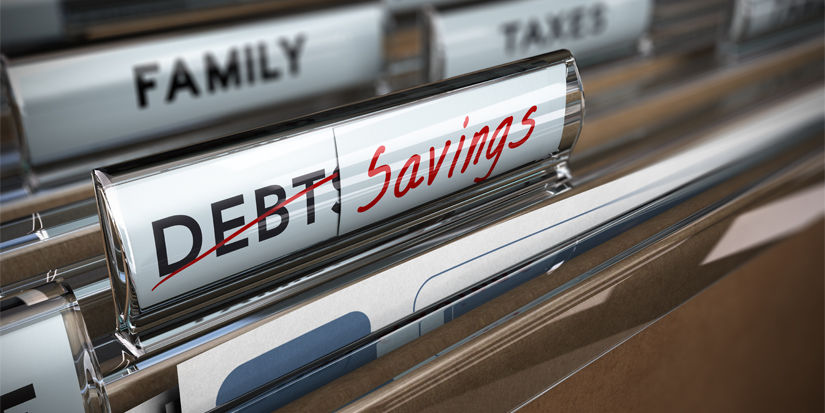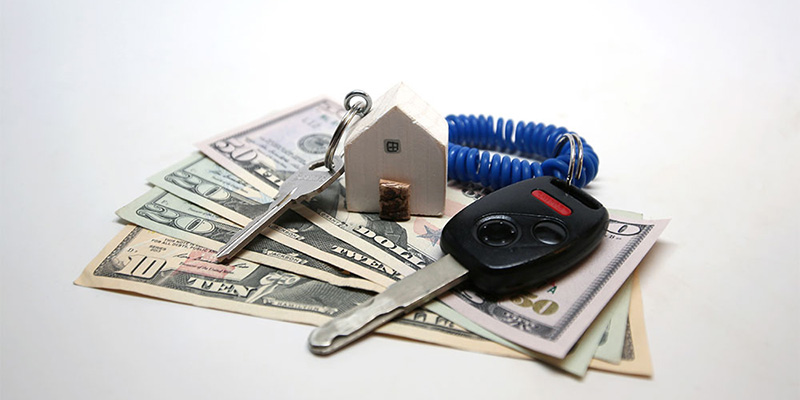
It Might Be a Bad Year
2024 might be a bad year. We might get a recession. We might get a bear market. We might get a housing collapse. We might get a war. We might get political turmoil. Actually, that is definitely going to happen.

New Year’s Resolutions, Etc.
Some people get themselves in a big financial jam, like with six figures in credit card or other debt. Then they feel stuck—it will take a decade to pay this off. It is pretty close to checkmate.

Buying a House in Today’s Interest Rate Environment
Even if you’re not up to your eyeballs in the financial world, you have probably heard that interest rates have come down a bit. Ten-year interest rates have dipped about 1%. Thirty-year fixed-rate mortgages are benchmarked off 10-year interest rates, so mortgage rates have come down about 1%.

This Deli Tray Is Unacceptable
Say you are having some people over to your house to watch a football game, so you go to the grocery store to get a deli tray. Nothing fancy—one of those cheap round circular plastic containers with sliced-up ham, turkey, and cheese.

The House, the Car, and How Much to Save for Retirement
I follow a personal finance guy on Twitter, and I actually did an interview with him years ago. He’s a terrific guy, and he came up with some basic financial rules.

Layoffs Are Traumatic but Not the End of the World
Let’s say you just got laid off from your job. You’re probably pretty upset.
Getting laid off from a job, especially a job that you like, is one of the most traumatic things you can go through. Losing your job can be as bad as a divorce or losing your pet.
I have a friend who worked on Wall Street—he worked at the same firm for 27 years, and he recently got laid off.
Which brings me to the topic of ageism…
How to Prepare for Layoffs
Reaching 47 years old on Wall Street might as well be the kiss of death. They relentlessly fire people when they get to age 47: “You’re too expensive. We’re going to replace you with a cheaper model!”
It happens all the time, and it’s so egregious. People work until their 40s or 50s and start to get expensive, and then Wall Street lays them off and hires somebody younger.
The funny thing about the financial industry is that any skills you have learned on Wall Street are not transferable anywhere else. So, you can trade stocks? How does that transfer? Where else can you do that? Nowhere. Your skills are completely useless.
This is why people find themselves in a position where they’re 50 years old and must completely reinvent themselves lest they starve.
My advice: I hope you have some money saved up. Sometimes people don’t. They think their situation will go on forever, and then the game of musical chairs stops, there’s no chair, and you’re out of luck. So, as I often preach, build your emergency fund!
It’s Not Personal
Still, if you’ve been with a company for a long time (like decades) and you’re let go, it’s one of the worst things ever, emotionally speaking. But it’s not that big of a deal. And the reason I say it’s not that big of a deal is because you can find another job—although maybe not making as much money, which is the traumatic part.
In the case of Wall Street, it’s a tough business. But everything is a tough business. Getting laid off when you are older is tough. Don’t tell me there’s not age discrimination out there because there is.
That said, it’s going to be okay. Things are going to work out for the best, and you’re going to be happier in the long run.
I firmly believe that the point here is to be resilient, and it’s nothing personal. If a company’s revenues are down, it must cut costs. All it means is that you weren’t the most efficient worker, or you represented a significant expense.
But it’s not personal, even though it can be difficult to not take it personally. It’s not. It’s just capitalism.
Get After It
I'll just give you another piece of advice: If you’re out of a job, don’t wait until the unemployment runs out before you start looking for employment. A lot of people do that. They get unemployment for six months and, five months and two weeks later, say, “Oh, crap. I have to look for a job!”
You should start looking right away. You’re not on vacation here, although you should take a little bit of time to decompress. If you’ve been working in the same place for a long time and working hard for years and years, I don’t blame you.
But don’t get too comfortable. You suddenly have all this free time, but you should not be down at the country club drinking vodka tonics at 11 in the morning.
Really, if you’ve been laid off, looking for a job should be your full-time job. You should be spending 10 hours a day at it. Get after it with the same intensity as when you looked for your first job.
Jobs won’t come to you. You must be proactive. Sitting at home and wishing that you had a job is not a good way to get a job.
Do What You Must to Survive
All this to say, getting laid off can be one of the most stressful things that can happen to you. You feel insulted, and you have all kinds of emotions. Pick yourself up, though. Rub some dirt on it. Or maybe you’ve been doing this long enough that you have enough money to retire. In that case, retire and work on stuff that you like.
Ultimately, getting laid off is not the end of the world. It’s only the end of the world if you make it the end of the world. It happens to everyone at some point.
So, try not to wallow in self-pity because it’s important that you take a job—any job. Even if you’re getting paid less, you have to be working. You can’t hold out for the perfect job. The longer you are out of the job market, the less attractive you become to employers.
I have confidence that you can do this. Do what you must to survive: deliver pizzas, be an Uber driver, whatever. It’s a big deal, but it’s not that big of a deal. You can handle it.

Jared Dillian, MFA
P.S. Most personal finance literature is focused on getting people the most money and therefore doing things that increase their stress. It causes them to think about money all the time. People shouldn’t be thinking about money all the time. Instead, they should aspire to not think about it at all. On January 23, 2024, my new book, No Worries: How to Live a Stress-Free Financial Life, will be released, but it’s available for preorder now. Secure your copy—you’ll read it in one sitting, and it will change your life for the better.
|
‹ First < 7 8 9 10 11 > Last ›